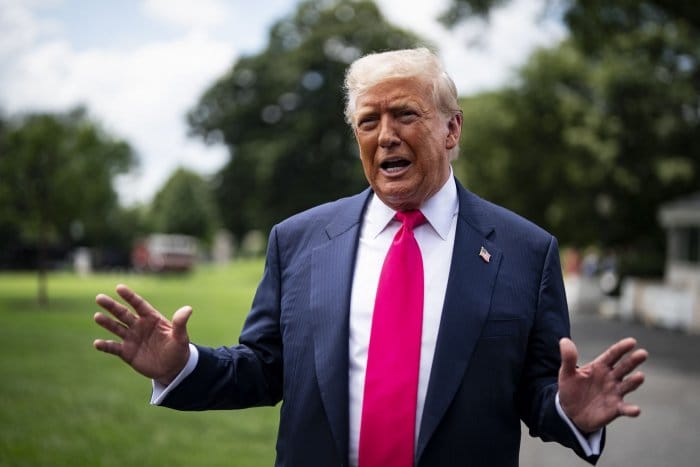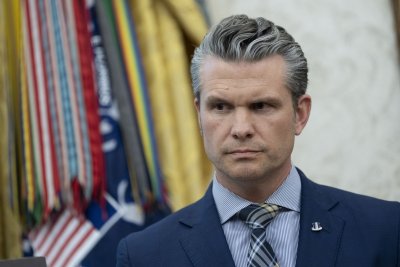Pentagon steps up media restrictions, requiring approval before reporting even unclassified info
The Pentagon says it will require credentialed journalists at the military headquarters to sign a pledge to refrain from reporting information that has not been authorized for release — including unclassified information.
Journalists who don’t abide by the policy risk losing credentials that provide access to the Pentagon, under a 17-page memo distributed Friday that steps up media restrictions imposed by the administration of President Trump.
“Information must be approved for public release by an appropriate authorizing official before it is released, even if it is unclassified,” the directive states. The signature form includes an array of security requirements for credentialed media at the Defense Department, which Trump has moved to rename the War Department.
Advocates for press freedoms denounced the nondisclosure requirement as an assault on independent journalism. The new Pentagon restrictions arrive as Trump expands threats, lawsuits and government pressure as he remakes the American media landscape.
“If the news about our military must first be approved by the government, then the public is no longer getting independent reporting. It is getting only what officials want them to see,” said National Press Club President Mike Balsamo, also national law enforcement editor at the Associated Press. “That should alarm every American.”
No more permission to ‘roam the halls’
Defense Secretary Pete Hegseth, a former Fox News Channel personality, highlighted the restrictions in a social media post on X.
“The ‘press’ does not run the Pentagon — the people do. The press is no longer allowed to roam the halls of a secure facility,” Hegseth said. “Wear a badge and follow the rules — or go home.”
The Pentagon this year has evicted many news organizations while imposing a series of restrictions that include banning reporters from entering wide areas of the complex without a government escort — areas where the press had access in past administrations as it covers the activities of the world’s most powerful military.
The Pentagon was embarrassed early in Hegseth’s tenure when the editor in chief of the Atlantic, Jeffrey Goldberg, was inadvertently included in a group chat on the Signal messaging app where the Defense secretary discussed plans for upcoming military strikes in Yemen. Trump’s then-national security advisor, Mike Waltz, took responsibility for Goldberg being included and was shifted to another job.
The Defense Department also was embarrassed by a leak to the New York Times that billionaire Elon Musk was to get a briefing on the U.S. military’s plans in case a war broke out with China. That briefing never took place, on Trump’s orders, and Hegseth suspended two Pentagon officials as part of an investigation into how that news got out.
On Saturday, the Society of Professional Journalists also objected to the Pentagon’s move, calling it “alarming.”
“This policy reeks of prior restraint — the most egregious violation of press freedom under the First Amendment — and is a dangerous step toward government censorship,” it said in a statement Saturday. “Attempts to silence the press under the guise of ‘security’ are part of a disturbing pattern of growing government hostility toward transparency and democratic norms.”
And Matt Murray, executive editor of the Washington Post, said in the paper Saturday that the new policy runs counter to what’s good for the American public.
“The Constitution protects the right to report on the activities of democratically elected and appointed government officials,” Murray said. “Any attempt to control messaging and curb access by the government is counter to the First Amendment and against the public interest.”
Lee writes for the Associated Press.




